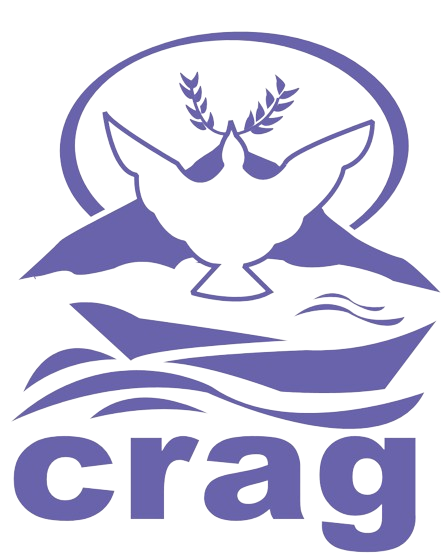Busting the Migrant Myths
What is the difference between a Refugee, Migrant or Asylum Seeker?
Asylum seeker:
A person fleeing from persecution in another country who has made themselves known to authorities and exercised their legal right to apply for asylum.
Refugee:
A person whose application for asylum has been successful and who is allowed to stay in another country having proved they would face persecution in their home country. They have the same rights as permanent members of that country.
Migrant:
A person who moves from one country toanother for the primary purpose of work or study whether permanently or temporarily.
The country is flooded with refugees and Britain takes more than its fair share
There is absolutely no evidence for this. Asylum applications to the UK are relatively low -
35,566 in the year to December 2019. The UK ranks 17th in Europe for asylum applications per
head of population. France receives almost three times as many asylum applications as the UK.
The UK has agreed to take in 5,000 refugees from the Afghan crisis this year and to resettle
up to 20,000 refugees from Afghanistan and other countries over the coming years. This
number of people would only fill one third of the capacity of Liverpool FC stadium, and they
are spread over the whole country. Cumbria itself is one of the largest and least populated
counties in the UK.
They are all here illegally
There is no such thing as an illegal asylum seeker. International law states that anyone has
the right to apply for asylum in another country and remain there until the authorities have
assessed their claim. All refugees have gone through this arduous process and been
successful in their application, asylum seekers are often ‘in limbo’ for years while their claims
are processed.
Letting in refugees means we let in terrorists
Asylum seekers are fingerprinted, photographed and security checked before being issued
with ID cards. They have to report regularly to immigration centres and can be detained at
any point during their application process.
They all want to come to Britain
This is not true. The great majority of refugees and asylum seekers (86% according to the
UNHCR) are in some of the poorest countries in the world, often near or next to war zones. At
the end of 2018, the country hosting the most refugees was Turkey - home to almost 3.7
million refugees. Other significant host countries for refugees were Pakistan (1.4 million),
Uganda (1.2 million), Sudan (1.1 million), Iran (979,435) and Lebanon (949,666).
Refugees are here because they are escaping war and persecution in their country of origin.
Some come to Britain, often because they have family here.
Asylum seekers get to stay in hotels
When an asylum seeker arrives in the UK, they are unlikely to know anyone here or have
anywhere to go. The Home Office will house them in an initial accommodation centre. This is
a temporary measure before they’re moved on elsewhere, to something more permanent.
But pressures on the system mean that sometimes these centres are full - and barracks,
hotels and B&Bs are used as ‘overspill’.
When placed in a hotel on arrival in the UK people get no allowance. After some weeks in a
hotel they get around £8.00 per week.
They take our houses
Asylum seekers are housed under a separate system and are not competing on local housing
lists. They have no choice in where they are housed and are often placed in hard to let
properties. Due to a housing shortage in London and south-east England, most asylum
seekers are sent where accommodation is cheaper. The Home Office calls it ‘dispersal’. They
don’t get council houses, as asylum seekers cannot access this standard welfare, only specific
asylum support.
When someone gets refugee status, they can no longer stay in asylum accommodation. They can choose where to live, but they have to pay for their rent or ask for government help-like any UK citizen. (But without the family ties or support that many of us take for granted.) The relatively small number of refugees who come to the UK under specific resettlement schemes may be placed in social housing.
They don't want to work and don't contribute
The fact is that refugees do overwhelmingly work and pay taxes.
Asylum seekers cannot work until they get refugee status. They bring a wide range of
skills and, once they are allowed to work, they often fill shortages in the UK
employment market.
They receive lots of benefits
People seeking asylum cannot claim benefits.
If they are destitute and have no other means of supporting themselves, they can apply to
receive asylum support. They are provided with basic accommodation and receive just £5.84
per day to cover all their needs including food, household items, travel and internet.
Refugees are entitled to the same benefits as anyone else.
Delays by the Home Office in processing asylum applications (in breach of their own
standards) means that many asylum seekers are stuck in limbo for many years, without
permission to work.
The Council Tax goes up because of refugees
Asylum and resettlement refugee support is funded by Central Government and not local
government, so there is no effect on council tax.
They take our jobs
There is no evidence that refugees take jobs away from others. Some refugees are
entrepreneurs and start new businesses creating employment.
Migrants are a drain on public services
Migrants are less likely to claim welfare benefits or live in social housing than people born in
the UK. They are 3 times more likely to live in the private rented sector. Migrants are more
likely to be young, healthy, well qualified and therefore contribute more to the tax and
benefits scheme than they receive. They deliver vital services in areas such as social care,
education, construction and particularly in the National Health Service.
A PDF version of this information is available HERE

